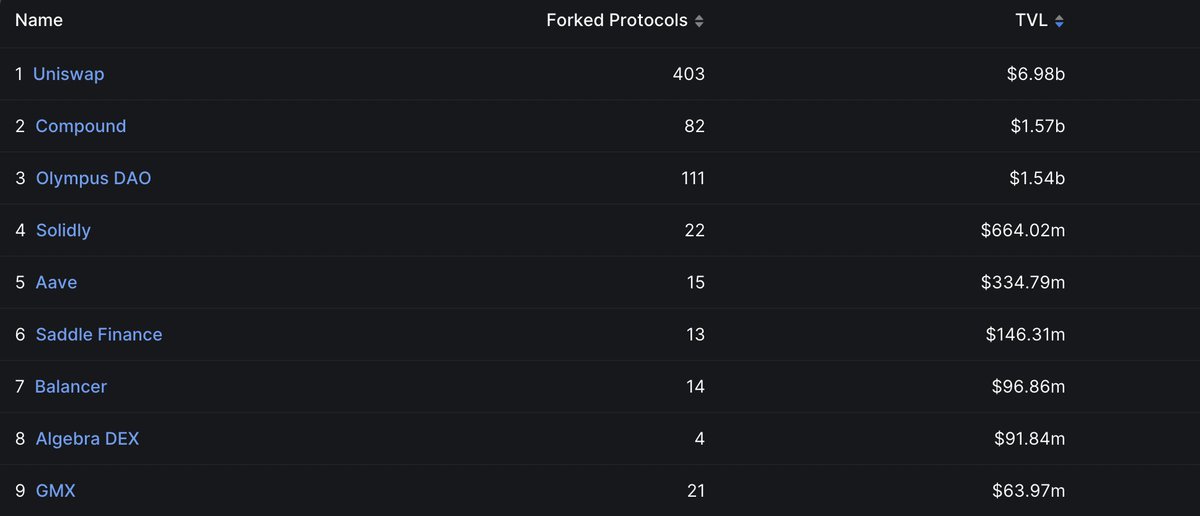Why are crypto influencers always shilling $ADA?
It's barely trading above its ATH, it's been heavily criticized, and there's been little progress since they launched smart contracts.
Here's the $100 million secret Cardano youtubers don't want you to know:
(thread👇)
It's barely trading above its ATH, it's been heavily criticized, and there's been little progress since they launched smart contracts.
Here's the $100 million secret Cardano youtubers don't want you to know:
(thread👇)
When you look at a crypto, make sure to closely look at incentive structures. These are the mechanics that make price rise and fall.
Who's motivated to hold, to advertise, to buy, and to sell?
The key mechanic for Cardano?
Staking. About 70% of ADA is locked in stake pools.
Who's motivated to hold, to advertise, to buy, and to sell?
The key mechanic for Cardano?
Staking. About 70% of ADA is locked in stake pools.
The rate on your staked Cardano? About 5% a year.
The rate for someone who RUNS the stake pool?
Over 100% a year.
So validators are doubling their money yearly off the locked funds of their stakers, while stakers earn just about 5%.
That seems a little bit misaligned, right?
The rate for someone who RUNS the stake pool?
Over 100% a year.
So validators are doubling their money yearly off the locked funds of their stakers, while stakers earn just about 5%.
That seems a little bit misaligned, right?
But if you're Cardano, you've got to incentivize people to promote the asset. The more you pay the validators, the more they will work to promote $ADA and get you to stake it.
If you've got a captive audience, it's a beautiful business model.
If you've got a captive audience, it's a beautiful business model.
The system works like this. Your neighbor Greg:
• Watches a video shilling Cardano
• Buys some $ADA
• Locks it up in his favorite youtuber's validator pool
• Makes 5%
• The youtuber doubles their money yearly
• Greg waits for ADA to moon
• Watches a video shilling Cardano
• Buys some $ADA
• Locks it up in his favorite youtuber's validator pool
• Makes 5%
• The youtuber doubles their money yearly
• Greg waits for ADA to moon
This is not just a conspiracy theory.
Cardano actually recommends that validators set part of their budget aside for running a Youtube channel!
Youtubers talk about how easy it easy to set up nodes like there's no conflict of interest.
Cardano actually recommends that validators set part of their budget aside for running a Youtube channel!
Youtubers talk about how easy it easy to set up nodes like there's no conflict of interest.

So how much do these validators earn?
Like, a LOT.
@intocryptoverse, @cryptorecruitr, @Bitboy_Crypto, @jasonpizzino, Max Maher, and @hashoshi are all making very meaningul amounts of money off of pooling subscriber assets.
Ben Cowen is clearing almost half a million/year!
Like, a LOT.
@intocryptoverse, @cryptorecruitr, @Bitboy_Crypto, @jasonpizzino, Max Maher, and @hashoshi are all making very meaningul amounts of money off of pooling subscriber assets.
Ben Cowen is clearing almost half a million/year!

Look, youtubers have to eat too, and it's more than possible that they truly believe Cardano is going to the moon.
But you'd think a disclosure on just how much they're making might make the whole pursuit a little less sketchy.
But you'd think a disclosure on just how much they're making might make the whole pursuit a little less sketchy.
The whole system earns about $100 million a year and has around $35 billion under management.
To me, that's enough to be worth mentioning.
To me, that's enough to be worth mentioning.
Let me know what you think, especially if you're a youtuber, you run a stake pool, or you participate in one.
If you like this thread, please do me a favor!
Go back to the first tweet (it's linked below) and drop a fav/RT.
Go back to the first tweet (it's linked below) and drop a fav/RT.
https://twitter.com/JackNiewold/status/1466823474098229255?s=20
And if you'd like to read more in-depth analysis on altcoins, what they're worth, and how they move in price, please check out my newsletter!
cryptopragmatist.com/sign-up-twitte…
We all gotta shill a little bit. I just think it should be more transparent.
cryptopragmatist.com/sign-up-twitte…
We all gotta shill a little bit. I just think it should be more transparent.
Last thing--if you like threads like this with deep dives and data-backed takeaways on altcoins, give me a follow, I'd really appreciate it: @JackNiewold
Been getting a lot of criticism around the word ‘locked.’
To clarify: funds are not ‘locked,’ they can be unstaked at any point.
But vocab arguments miss the point of the thread.
YTers have different incentives than stakers and should disclose that when promoting stake pools.
To clarify: funds are not ‘locked,’ they can be unstaked at any point.
But vocab arguments miss the point of the thread.
YTers have different incentives than stakers and should disclose that when promoting stake pools.
• • •
Missing some Tweet in this thread? You can try to
force a refresh








